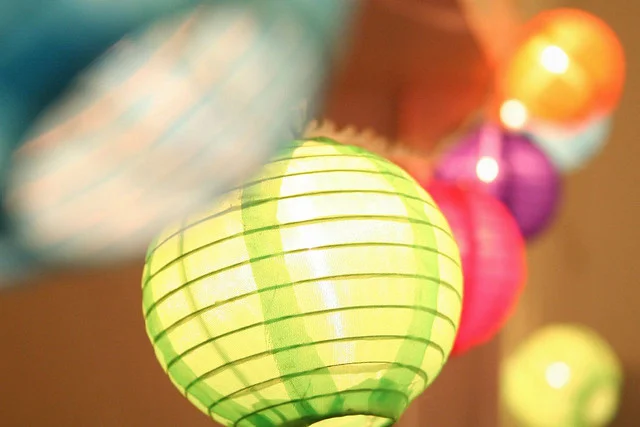A little over a year ago, a woman I instantly began thinking of as “the crazy Russian lady” showed up at my easy-going morning exercise class and announced she was the new teacher. Exuberant and kinetic, Zhanna spends much of her life teaching Zumba, but we'd be learning a gym-friendly version of ballet. And she assured all of us— the weak, the semi-motivated, the too-stiff-for yoga—that none of those adjectives mattered. We'd easily pick up the basics she'd learned from her teachers in Russia. Eyebrows rose. Us? Ballet? I pictured elephants in tutus.
“Ballet,” as far as I could see, consisted of long, long sets of rapid leg lifts alternating with stunts that involved balancing on one leg while swinging various other body parts around. Through it all we were instructed to “up your chin” or “make leg like dog at hydrant” as the Zumba tracks blared and the crazy Russian lady yelled “nonstop, nonstop!” anytime we began to flag. Which was often.
But the impossibility of it all was weirdly compelling. What were people like us doing in a class like that? And why did she keep acting as though we could do this thing we clearly weren’t cut out for? It was a mystery. It was also sort of fun. I think we kept coming back to find out what would happen.
My expectations were so low I counted any progress as a victory. The way I saw it, I could only get better. At first, I stopped every time my mind said: “I can’t do this” or “I’m too tired,” but I started to realize that that was practically all it said—so I began to ignore it and just pay attention when my body announced it was time to take a break.
There was a lot of laughter and eye rolling in that class in the early months. Just look at us, the smiles would say, as we wobbled and shook. All around the room, bodies were relearning how to stand, tipping and flailing and falling, trying again. How could it possibly take so many muscles in so many places to stay upright on one leg?
What pulled us forward? A sense of play.
We kept showing up twice a week for an hour at a time, getting imperceptibly better at “upping our chins” and remembering to “straight our shoulders.” When someone brought her two young ballet-student daughters to class, their supple grace set our teetering stiffness in relief. We could see what our moves would look like performed by dancers. We clapped and cheered the girls. No one was going to wave a wand and make us nine years old again. All we could do was enjoy their beauty and our own stubborn persistence. We’d be there at the next class. It was something we did now. For the heck of it, just to play around.
All these months later, progress seems to be sneaking up on us. None of us is doubled over panting five minutes into the class anymore, and all of us are stronger. Weeks and weeks went by when it seemed as though nothing was happening, but every once in a while I’d realize that standing on one leg was no big deal anymore, or notice we all looked taller.
The unintended side effect? Somewhere along the line, the “throw yourself in there and see what happens” approach began to spill over into my writing practice. There was something about the experience of being a beginner that my writing longed for.
The perks of writing as a beginner
* As a beginner, you get big points just for showing up and trying. No one expects you to be perfect. You don’t expect you to be perfect. The victory is in returning to the effort.
* When the going seems absurdly hard, a beginner is likely to laugh and say, “This is absurdly hard!” The laugh is forgiving, accepting. Of course it’s difficult—you haven’t done it before! You’re figuring it out!
* A certain delight comes with beginner status. You don’t know what you’ll discover or how your small efforts will add up. So when you suddenly see yourself do something difficult with more ease, or recognize that you’ve used a move you hardly realized you had, or pulled an image that’s apt and beautiful out of the air, there’s surprise and pleasure in the accomplishment. Wow! That was me! (Beginners, you may have noticed, get a large supply of exclamation points.)
Every time we write, we’re beginning again. And approaching the blank page by asking, “I wonder what’ll happen today” brings a pleasure and freedom that’s all but blotted out when when the “serious professional” in us, the competitive part concerned with outcomes, asks: “I wonder if people will love this. Today's writing is only worth it if it's good.”
Just as an experiment, try letting yourself be a beginner when you sit down to write this week, beautiful writer person. Find the fun in taking the first awkward steps toward something new—dialog you've been wanting to try. A different kind of voice. A writing schedule you've been afraid to commit to. The story you're struggling to finish. Stay with the process of diving in, adjusting, trying again. The pirouettes and denouements will take care of themselves.
(Photo by David 23, via Flickr.)

